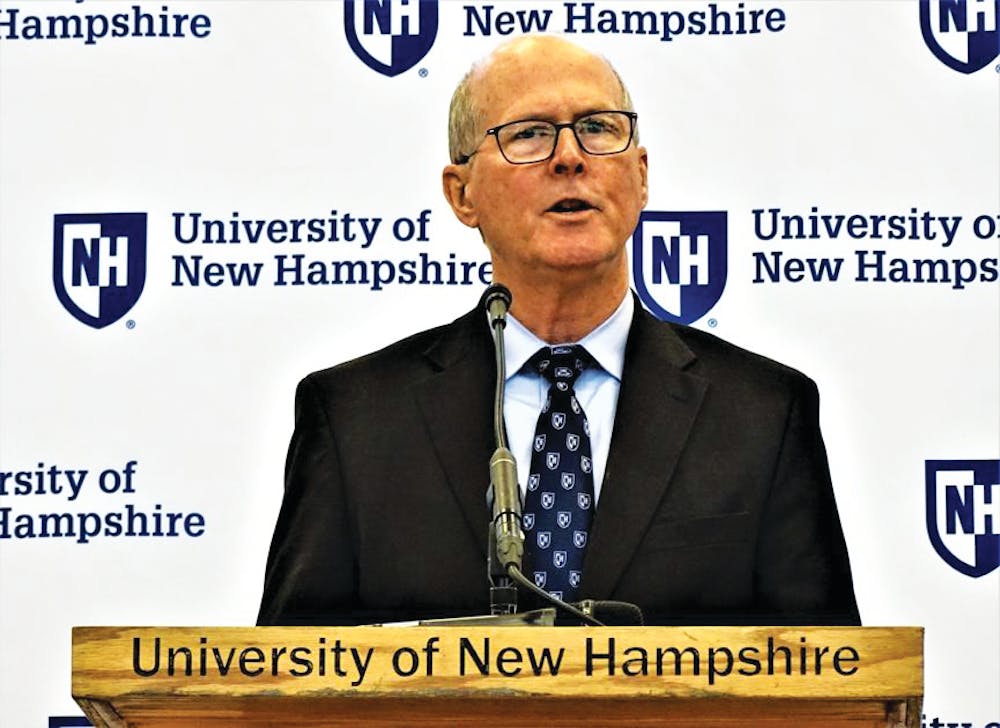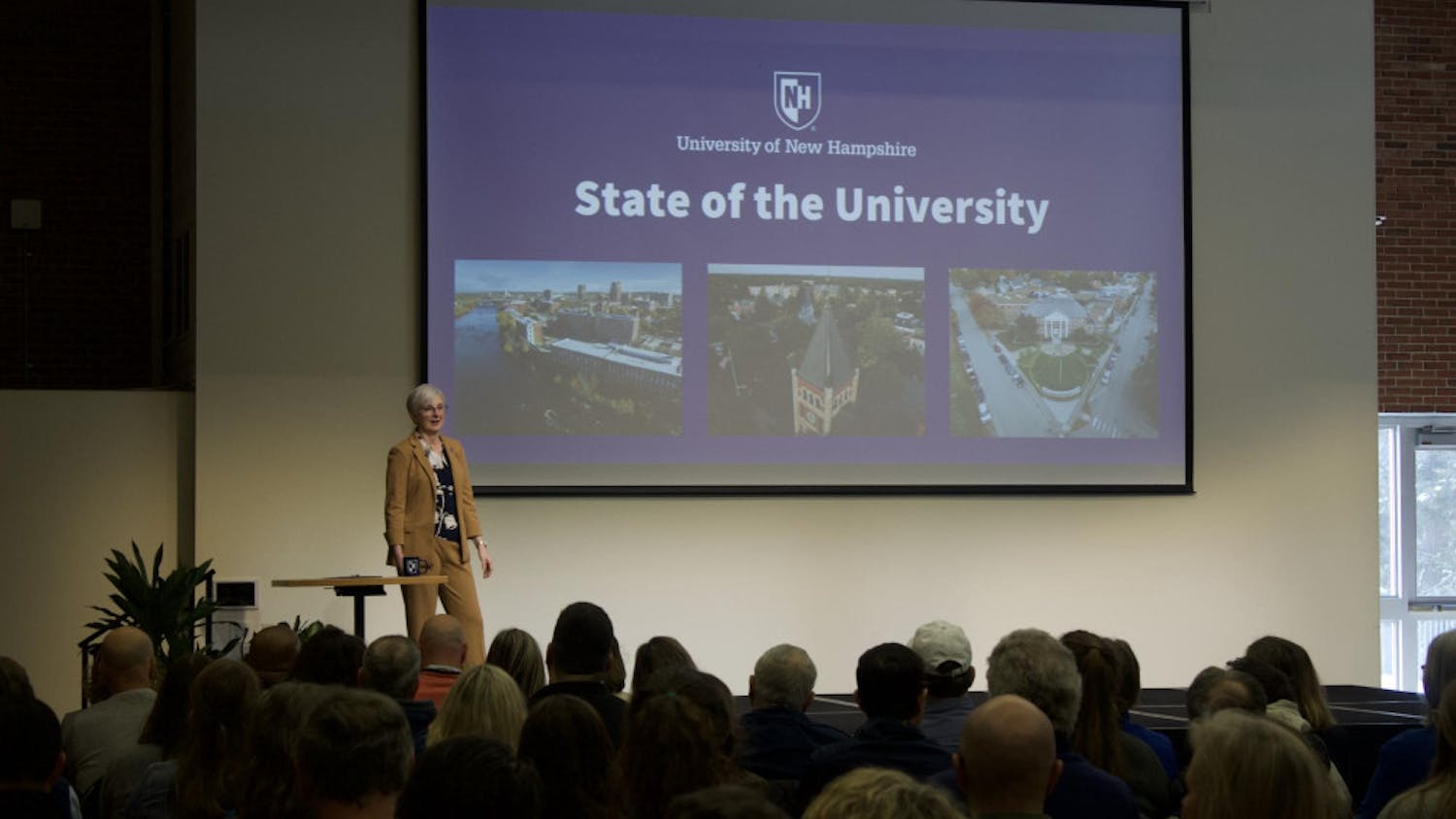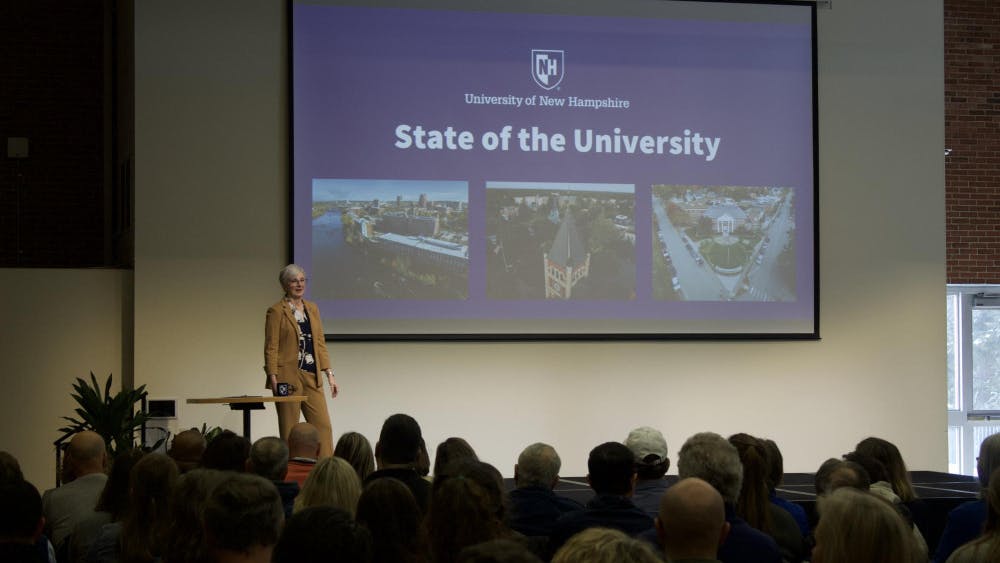President James W. Dean Jr. of the University of New Hampshire (UNH) hosted the annual State of the University address with numerous other administrators.
COVID-19 remained a major talking point during the Tuesday address.
Since the start of the semester, over 350,000 COVID-19 tests have been administered, either by UNH’s own lab or the university’s partnerships with ConvenientMD and Quest Diagnostics. University catering team members prepared and delivered over 13,000 meals to students in quarantine and isolation, according to Dean.
“Student leaders in our residence halls went to great lengths to protect the health and safety of our students, and our cleaning crews did a marvelous job of keeping our buildings clean and sanitary,” said Dean.
Dean acknowledged the over 400,000 Americans who have lost their lives to COVID-19.
“Some of these were family and friends of members of the UNH community and our hearts go out to each of you who lost a loved one,” said Dean.
Dean expressed his confidence in keeping students on campus for the spring semester, based on the university’s efforts to keep UNH open for the fall semester.
“Our fall experience convinced me that we can successfully face this together. I ask for your continued diligence and patience.”
As of Wednesday morning, 75 new positive cases were reported, marking UNH’s highest daily increase since testing began. 129 positive cases have been reported, with 49 isolating on campus and 62 quarantining on campus.
Despite the high number of cases reported, UNH has expanded its testing capacity to long-term care homes across the state, as well as begun to sequence COVID-19 viral genomes.
In a Q&A hosted by Professor Tom Haines, Senior Vice Provost for Research, Economic Engagement and Outreach Marian McCord clarified information on the new sequencer.
“[The new sequencer] will be operational and ready for use in sequencing the genomes around February 17th,” said McCord.
When asked about COVID-19 variants at UNH, McCord confirmed that variants of COVID-19 have not been detected at UNH.
“We haven’t detected any [COVID-19] variants here at UNH nor have any variants been detected here in New Hampshire as of yesterday when we met with DHHS,” McCord said.
As vaccinations begin to roll out, some have questioned as to what will happen with the COVID-19 lab after the pandemic has ended.
“We will continue to use the resources we’ve invested in the lab as part of our long term research strategy but also to hopefully create a long term surveillance and resilience capacity for the state,” said McCord.
Though no new variants have been detected, cases continue to rise, and the university has not given a concrete answer as to the threshold of positive cases required to change modes of operation.
Vice President and Provost for Academic Affairs Wayne Jones Jr. neglected to clarify the threshold in which UNH would have to reach in order to transition modes of operation.
“Our goal is to make the best informed decision with the data we have and to inform the campus community as rapidly as possible,” said Jones.
Though UNH’s reopening plan worked in the fall, it has been costly.
“An analysis done last summer estimated we would need to save approximately $40 million by fiscal year 2023 in order to achieve financial sustainability,” Dean said. “It looks as if we are roughly on track to do this.”
Part of this cost savings comes from UNH’s partnership with Huron Consulting Group, where the university spent over $600,000 to find savings in its efforts to become a top 25 research university.
“We’re already in the top 25 in several [incentive] metrics,” said Dean.
UNH plans to realize over $12 million in savings through scaling back Facilities, IT and the Library. It is unknown how many positions have been cut at this time.
Through these cost-savings initiatives, UNH also introduced an early retirement program, called the COVID Enhanced Retirement Program, or CERP.
“This initiative provided funding for early retirement for faculty and staff who met the criteria,” Dean said.
Over 58 faculty and 223 staff members have taken advantage of the program.
“The people who are leaving represent 7,700 years of service,” Dean said.
Dean also reaffirmed UNH’s commitment to freedom of speech.
“We have gone to great lengths to promote free speech. Including in some cases speech that was offensive to members of our community,” Dean said. “We can and do regulate the time, place and manner of speech to ensure that we can always fulfil our educational mission.”
As UNH begins to transition and adapt with COVID-19 and continue to adhere to CDC guidelines, the hybrid model may be scaled back in the future.
“In-person learning, in the conventional sense, I believe will no longer be the unquestioned default for what we do in terms of course offerings in the future,” said Dean.
UNH will continue to adapt and develop new plans in order to meet its educational goals.
Photo courtesy of the Union Leader












